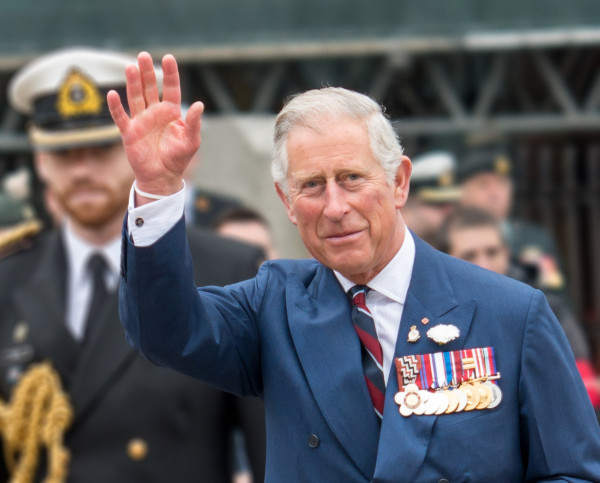King Charles' Official Portrait Defaced by Animal Rights Activists

Animal rights activists in London have defaced King Charles' first official portrait since his coronation in May 2023. The incident took place at the Philip Mould Gallery, where the striking red portrait, painted by renowned artist Jonathan Yeo, was displayed. Two supporters of the group Animal Rising attached posters inspired by the animated characters Wallace and Gromit onto the image, overlaying the king's face with that of Wallace, accompanied by a speech bubble reading, "No Cheese Gromit. Look At All This Cruelty On RSPCA Farms!"
The activists' actions were intended to draw attention to a new report published by Animal Rising on June 9. The report highlighted instances of "cruelty and suffering" across 45 randomly sampled farms affiliated with the Royal Society for the Prevention of Cruelty to Animals' (RSPCA) Assured program. The RSPCA Assured is a non-profit initiative dedicated to farm animal welfare assurance, ensuring that high standards are maintained from birth to slaughter.
King Charles, 75, serves as the royal patron of the RSPCA, a role that continues the legacy of his mother, Queen Elizabeth. The activists' decision to target his portrait was a calculated move to leverage his status and visibility in support of their cause. "The lighthearted action played on the King's love of Wallace and Gromit and his status as Royal Patron of the RSPCA," Animal Rising stated in their announcement. They called on the King to suspend his support for the charity until it drops the Assured Scheme.
The protestors chose a significant and symbolic target for their demonstration: King Charles' inaugural portrait since his coronation. Unveiled at Buckingham Palace on May 14, the portrait marked the culmination of a four-year commission that began in 2020. The artwork was intended to commemorate Charles' 50 years as a member of The Draper's Company, a milestone he reached in 2022.
Jonathan Yeo, the artist behind the portrait, is known for his depictions of high-profile figures. The defacement of his work has not only raised questions about security at the gallery but also highlighted the lengths to which activists will go to make their voices heard. The act has garnered significant media attention, bringing the issues raised by Animal Rising into the public eye.
The RSPCA has yet to respond to the demands made by Animal Rising, but the protest has sparked a broader conversation about animal welfare standards and the effectiveness of the RSPCA's assurance programs. The report by Animal Rising alleges that the conditions on RSPCA Assured farms fall short of the organization's advertised standards, citing various instances of neglect and mistreatment.
King Charles, who has long been an advocate for environmental and animal welfare causes, now faces pressure to address the concerns raised by the activists. His role as royal patron places him in a unique position to influence the organization's policies and practices. Whether he will take action in response to the protest remains to be seen.
The incident at the Philip Mould Gallery is a reminder of the power of art and public figures in the realm of activism. By targeting a high-profile symbol, Animal Rising has succeeded in drawing attention to their cause, highlighting the ongoing debate about animal welfare and the responsibilities of organizations like the RSPCA.














